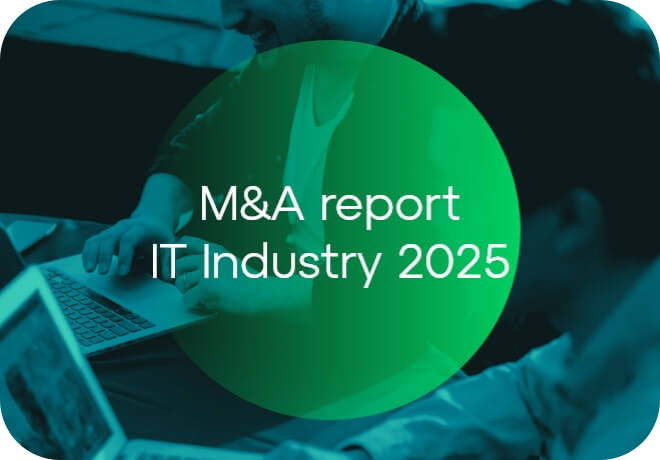20 . 08 . 2025
Due Diligence Due Diligence in M&A: Key Legal Aspects That Determine the Fate of the Transaction
20 . 08 . 2025
Legal Due Diligence isn’t a formality but the most important risk management tool in Mergers and Acquisitions. Its quality determines whether a transaction will proceed as planned. What legal areas are crucial, and how should the Due Diligence process be structured, especially in the context of transactions in the EU?
Incomplete corporate documentation, unclear ownership status of key assets, or pending litigation – such information can become a difficult obstacle to neutralize if it’s not spotted and properly analyzed. For one party, this means the need to hedge against risk, while for the other, it often means a loss of negotiating leverage and, in some cases, even credibility.
Therefore, a properly conducted legal Due Diligence is not only a procedural requirement, but also a tool for risk management and protecting the interests of the parties.
Why is Legal Due Diligence so important?
Every M&A transaction assumes not only a transfer of rights, but also a transfer of responsibility: for decisions, agreements, obligations and errors that are not always visible at first glance.
Risks that are not identified at the legal Due Diligence stage may emerge after the takeover, for example, in the form of outstanding debts to employees or licenses that cannot be transferred to the new owner, unresolved disputes, or tax issues. Sometimes, all it takes is one significant contract including a change of control clause to make the assumed post-acquisition revenue model difficult to achieve.
But well-conducted legal Due Diligence not only protects against loss – it can also uncover previously unnoticed value: scalable solutions or contractual advantages. It also facilitates discussions about price structure, party responsibilities, and closing terms, because it bases negotiations on facts, not assumptions.
In European conditions, where transactions are often subject to national and EU regulations simultaneously, legal Due Diligence becomes more than just a formality. It is a way to have control over what actually passes to the new owner.
What do we buy and under what conditions?
At the heart of every transaction is a question that sounds seemingly simple: what are we really buying and under what conditions?
The answer begins with a detailed understanding of the company’s legal situation, its ownership structure, liabilities, risks hidden in contracts, disputes that may escalate at any moment, and areas that need to be addressed before the transaction closes.
Let’s take a look at what should be included in a standard legal Due Diligence, why some areas are particularly sensitive, and what this means in practice for negotiations, parties’ liability, and the process itself.
What does Legal Due Diligence include?
The scope of legal Due Diligence in M&A transactions is broad and typically goes far beyond what is intuitively considered “legal matters.” It covers not only the company’s articles of association or the court register but also what contracts are signed, with whom, under what terms, and what happens if ownership changes.
The standard range includes:
- ownership and corporate structure
- contractual and financial obligations
- employment and relations with key employees
- intellectual property and technology rights
- licenses, concessions and regulatory approvals
- tax situation
- ongoing or potential disputes
- data processing and information security
In practice, each of these areas can reveal information that influences strategic decisions, from contract structure to price. Some information can be read directly from records, while others must be extracted from seemingly neutral documents.
Legal Due Diligence is all about finding trouble spots before they become a real problem and, above all, understanding what they really mean for the buyer, the seller and the transaction structure itself.
Ownership structure and legal title to shares
This is where every transaction begins. If the structure is unclear or the title to the shares uncertain, further steps may be irrelevant. The analysis covers not only the company registers and articles of association, but also restrictions on the transfer of shares, formal issues, and undisclosed powers of attorney.
Key Contracts and Change of Control
Contracts with customers and suppliers can be a source of advantage, but also risk. Change of control clauses can cause some contracts to expire or be renegotiated on less favorable terms after an acquisition.
Employment and staff relations
Relationships with employees, especially key employees, are often not fully regulated. The lack of a loyalty agreement or retention bonus can result in team members leaving shortly after closing. Potential claims from the past and documentation compliance with local labor law are also important.
Financial liabilities and collateral
Hidden debt or underestimated liabilities can impact a company’s cash flow and limit its freedom of action after an acquisition. It’s crucial to verify not only the content of loan agreements but also which assets have been encumbered and whether there are any liabilities guaranteed by other group entities.
Intellectual Property and Technology
In many cases, a company’s value is based on solutions whose legal status is not always transparent. Lack of copyright assignment, informal licenses, or non-exclusive access to key software can completely alter the risk assessment of a transaction.
Personal data and information security
For companies processing customer or employee data, GDPR compliance isn’t a matter of image, but a legal and business requirement. Disclosing data processing irregularities may result in penalties, notification to the regulator, or price renegotiation.
Permits, Licenses and Regulatory Compliance
Regulated industries (from finance to energy) require permits, the validity of which often depends on the form of ownership or the acquisition method. The inability to transfer licenses or the need to re-obtain them can delay or block the closing of a transaction.
Disputes and disputed obligations
Active legal proceedings, as well as potential conflicts such as unresolved complaints or payment demands, can generate future liabilities. Assessing their actual impact on the company allows us to determine whether protective mechanisms, such as escrow or indemnity clauses, will be necessary.
What can an oversight result in?
The risks arising from incomplete Due Diligence are not abstract. The consequences of errors are measurable and well-documented. In many cases, oversight in a single area (accounting, regulatory, technological) has led to price renegotiations, lengthy disputes, or even complete transaction failure.
HP a Autonomy
In 2011, Hewlett-Packard acquired the British company Autonomy for over $10 billion. Less than a year later, it took an $8.8 billion write-down, citing significant accounting irregularities. It was revealed that the company had overstated revenues and engaged in related-party transactions.
Yahoo and Verizon
Only after the acquisition agreement was signed did Verizon learn of two major data breaches involving Yahoo users, collectively affecting over 1 billion accounts. This resulted in a renegotiation of the price (a reduction of $350 million) and the allocation of liability for potential claims. The 2017 case demonstrated the importance of analyzing information security before signing transaction documents.
Virtual Data Room in Legal Due Diligence
In a well-managed M&A process, documents aren’t circulated via email, and company information isn’t shared ad hoc. Key information is organized, secured, and accessible in a controlled manner, most often via a Virtual Data Room.
A VDR streamlines the entire process, enables parallel work across advisory teams, allows for control over access to confidential information, and provides insight into who viewed documents and when. The better configured the VDR, the less chaos for buyers and the greater confidence in the process for investors.
Fordata supports transaction teams in conducting legal Due Diligence, providing a space where trust, control and confidentiality are possible simultaneously.
For companies planning a sale, beginning to organize their legal matters well in advance is a real advantage. For buyers, access to reliable information in a secure format is essential for a smooth decision-making process. In both cases, a tool that brings it all together is crucial.
Did you like the article?

Magda's extensive experience in the business field enables her to take on the most challenging tasks. Collaborating with her, clients can expect a high level of professionalism and partnership. Apart from typical market transactions, she is interested in alternative music and art. And after work hours, you can find her on her Vespa, exploring urban alleyways.
Do you want to exchange knowledge or ask a question?
Write to me : Magda Zdunek page opens in new window
See how Fordata VDR support Due Diligence
TEST FREE TEST FREE-
01 . VDR în procesul de due diligence

Fuziunile și achizițiile urmăresc beneficii strategice și financiare, iar succesul lor depinde de un pas esențial: procedura de Due Diligence.
16.01.2026
-
02 . Etapele Due Diligence – vânzarea afacerii pas cu pas

Deciziile de investiție solide se bazează pe o analiză atentă. Explicăm cum se desfășoară procesul de Due Diligence și ce aspecte sunt esențiale de evaluat.
16.01.2026
-
03 . Due Diligence – ce include exact?

Explicăm ce este Due Diligence, cine îl realizează și de ce este esențial pentru companiile care vor să vândă sau caută finanțare.
14.01.2026
-
04 . Top 10 funcționalități de căutat într-un Virtual Data Room pentru Due Diligence

Due Diligence a evoluat către Virtual Data Rooms sigure și eficiente. Care sunt funcționalitățile-cheie esențiale pentru un proces de succes?
14.01.2026
-
05 . Due Diligence – was genau umfasst es?

62 % der Fusionen scheitern finanziell – oft wegen mangelhafter Due Diligence. Wir erklären die Basics und warum sie unverzichtbar ist.
08.01.2026
-
06 . Die 10 wichtigsten Funktionen, auf die man bei einem virtuellen Datenraum für die Due Diligence achten sollte

Due Diligence hat sich grundlegend verändert: Physische Dokumente weichen sicheren, schlanken VDR-Strukturen. Doch welche Funktionen sind für eine erfolgreiche Due Diligence besonders wichtig?
08.01.2026
-
07 . Due-Diligence-Phasen – der Verkauf Ihres Unternehmens Schritt für Schritt

Fundierte Investitionsentscheidungen beruhen auf gründlicher Prüfung. Wir zeigen, wie Due Diligence Chancen und Risiken eines Verkaufs aufdeckt und worauf es zu achten gilt.
08.01.2026
-
08 . How Virtual Data Rooms Benefit Law Firms and Financial Institutions

Virtual Data Rooms benefit financial institutions and legal teams profoundly. See how a VDR can secure data management and compliance.
26.05.2025
-
09 . Challenges of Due Diligence: How Virtual Data Rooms Enhance Its Efficiency and Security

Virtual Data Rooms can turn Due Diligence into a safe and efficient process. Here’s what you need to know.
14.05.2025
-
10 . The Role of AI and Automation in M&A Virtual Data Rooms

Explore how AI and automation have enhanced Virtual Data Rooms to transform Due Diligence and M&A.
18.04.2025
-
11 . VDR in due diligence process

M&As are a permanent element of the economic world. Their goal is to achieve strategic and financial benefits by expanding markets, diversifying products and production processes.
27.05.2023
-
12 . Due Diligence audit using Virtual Data Room - security in your company

The process of sharing confidential information can be greatly improved by using Virtual Data Room. Preparing for an audit?
14.01.2019
-
13 . Vendor Due Diligence - the Value of Negotiation Preparation

Vendor Due Diligence (VDD) is carried out only for the needs of the seller, which means that it takes place earlier than Due Diligence (DD).
09.11.2015
-
14 . How can we help you with Due Diligence?

Time plays a major role in M&A transactions. Even the smallest improvement that saves time needed to prepare and perform Due Diligence…
10.03.2014














